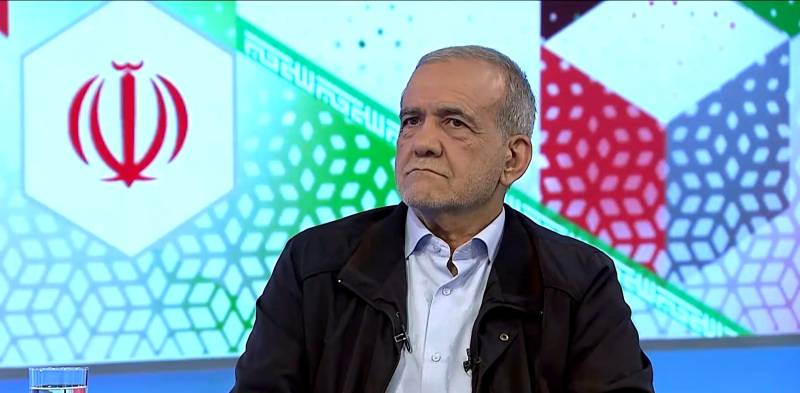
Masoud Pezeshkian has won the Iranian presidential elections following a run-off to beat his ultra-conservative opponent Saeed Jalili.
The Iranian Interior Ministry announced on Saturday that Pezeshkian received 16 million votes compared to Jalili's 13 million votes.
The Iranian elections, scheduled for later in 2024, were called early after the shock death of former president Ebrahim Raisi in a helicopter crash while returning from Azerbaijan on May 19.
Pezeshkian's victory heralds a shift in Iran's political landscape, which has long been dominated by conservatives.
The 69-year-old's victory comes amid rising domestic political turmoil with growing resistance against the conservative governmental order.
In the first round of elections held on June 28, Pezeshkian led the polls against three other conservative candidates, which stunned his supporters and rivals. However, he promised to 'extend the hand of friendship to everyone' if he won.
"The difficult path ahead will not be smooth except with your companionship, empathy, and trust. I extend my hand to you," Pezeshkian said in a post on 'X' (formerly known as Twitter) earlier in the week.
A heart surgeon by profession, Pezeshkian was a vocal critic of Raisi's government, especially in the aftermath of Mahsa Amini's tragic death in custody.
His electoral campaign maintained his stance against the strict dress code laws for women in the country.
He has also vowed to ease restrictions on the internet and to bring marginalised ethnic groups into his government.
Not new to politics
Pezeshkian is not an unknown figure by any means in the Iranian political landscape.
He was born in 1954 in the city of Mahabad in the northwestern province of West Azerbaijan to an Iranian father of Turkic origin and a Kurdish mother. While he took up medicine as his profession as a youngster, he was very much part of the Islamic revolution of 1979. He supervised sending medical teams to the war front during the Iran-Iraq conflict between 1980 and 1988. He also served as the health minister in Mohammad Khatami's government.
He has been representing Tabriz in Iran's parliament since 2008.
Among his allies are Iran's former foreign minister Javad Zarif, who campaigned for Pezeshkian.
Policies
While Pezeshkian has outlined political plans with reformist tendencies.
Domestically, Pezeshkian aims to bring certain liberal ideals to historically conservative policies. But ultimately, his room to maneuver will be limited given that his prime directive, like all the presidents before him, will be to apply state policy outlined by Iranian supreme leader Ayatollah Ali Khamenei, who wields ultimate authority in the country.
Internationally, he will seek to revive the nuclear deal that Zarif brokered in 2015 but which fell through three years later, thanks to US President Donald Trump. If the deal can be revived, it would lift some sanctions on Iran and relieve pressure on its economy.
In 1993, Pezeshkian lost his wife and one of his children in a car accident. He never remarried and raised his remaining three children — two sons and a daughter — alone.

